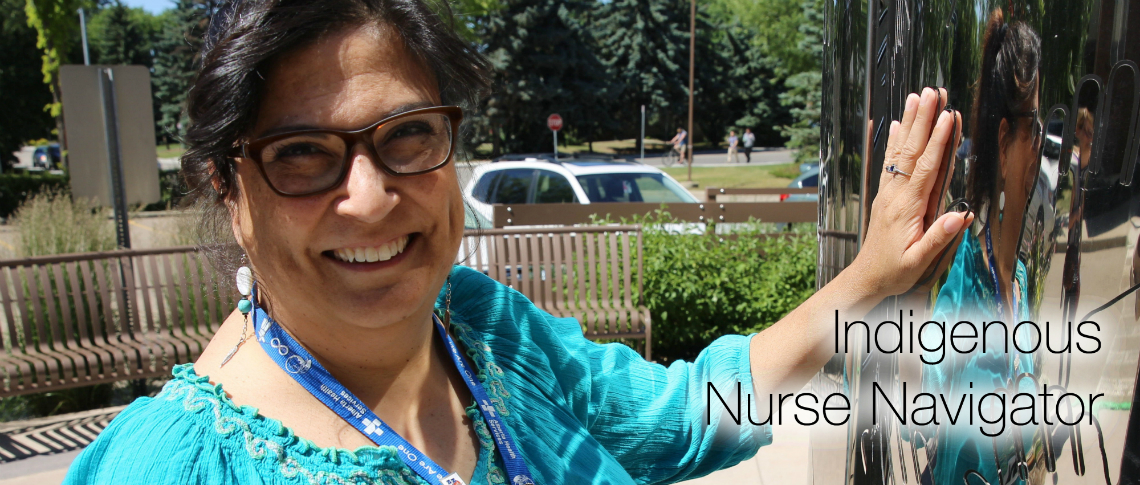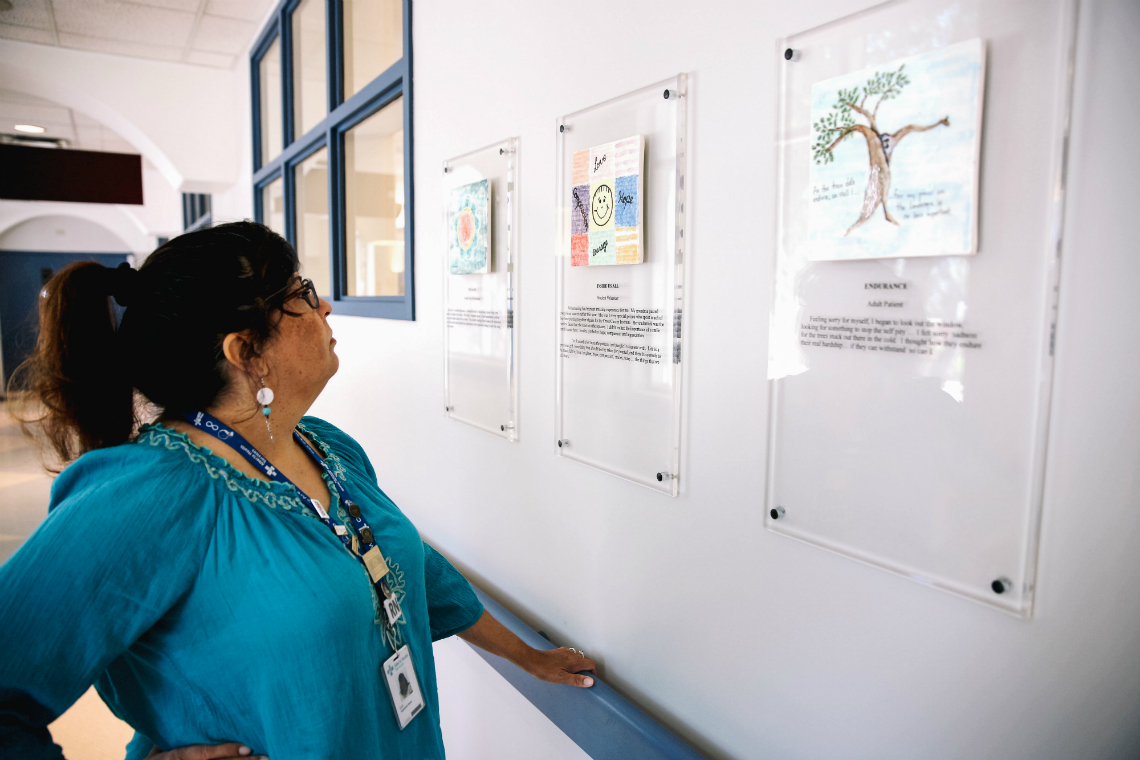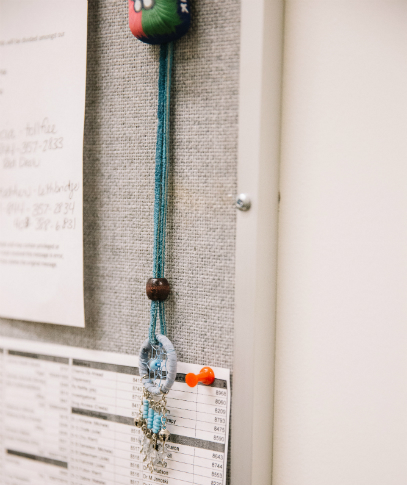

As told to Christy Weis
Nurse navigators are experienced oncology nurses who are familiar with the healthcare system and the process of cancer diagnosis, treatment, and recovery. A navigator acts as a centre point of contact for patients, helping them understand their options for treatment, what to expect from the appointments they go to, and the additional help and resources that they have access to.
Having someone who knows the hospital, the treatment process, and the healthcare system to act as a single point of contact, a guide and a resource that can help make going through the system a little easier and less overwhelming.
I’m a registered nurse, so I can also talk to patients about treatments, side effects, and different options that they might have. I have gone to appointments with patients who felt that they didn’t have any support here from family or friends. Generally, patients from out of town are sent to the Cross Cancer Institute with a medical escort, but on occasion, they won’t have anyone with them. I will attend appointments, and sometimes advocate for patients who are struggling to communicate with their oncologist or other members of their healthcare team.
This position encompasses much more than working with individual patients. I’m the only Indigenous Navigator in Alberta right now, and I work with patients not only from all across Alberta, but as far away as the Northwest Territories!
In helping Indigenous patients through the cancer system, I have to take into account issues like accessibility of healthcare, finance, transportation, and accommodations. There’s a lot of different people to contact, as well as challenge of organizing it all over a long distance, along with ensuring you’re financially able or have health benefits coverage to proceed with treatment. My patients are often dealing with really big issues, and these are a lot of the things I help with.
I’ve also been doing a lot of work with the Canadian Partnership Against Cancer and the Alberta Cancer Legacy and Prevention Fund. These organizations have projects focused on improving transitions for our Indigenous populations in the cancer system, and facilitating the transition from active care to recovery. In addition, we’ve talked about making cancer screening more accessible in Alberta’s First Nations communities, as well as improving education and cancer prevention.

I’ve always wanted to work with our communities, our populations because I know the health challenges we face. I’m Gwich’in. My mom was a residential school survivor, so I have that heritage, that bloodline. I’ve always been interested in Indigenous rights.
I’ve connected more with my culture since I’ve been in this role. I’ve had the opportunity to visit the Northwest Territories, where my mom’s from, and to work with people there who knew my mom and my family. I gained an appreciation for it all, the connection between people and community.
It’s really different; it’s a different way of life up there. When I was visiting Yellowknife, the Stanton Hospital is “it.” I asked someone where they came from and they told me Hay River – that’s a five hour drive away! The experience also gave me a better understanding of my patients, knowing where they’ve been and where they’re coming from.
In Navigation, I love that I can take all the knowledge that I have in oncology and apply it differently. I’m on the other side of treatment, not necessarily working with patients in the midst of treatment, or experiencing their worst side effects. It’s more of a case management role. I develop a different type of relationship with patients, as I get to know them over a longer period of time.
I like to help, and I like that I get to help people along. I get to work with organizations trying to make things better for our populations in how they interact with the healthcare system. I feel very fortunate – like this job was created for me.
When it comes to the larger healthcare team, I don’t have a formal referral process. I’ve found that with Indigenous culture and people, informal works best. I let members of the healthcare team know they can contact me, sometimes I contact the patient, or I leave my information and the patients themselves will call me. There’s a brochure in the new patient packages. I’ve had nurses from healthcare centres contact me for a referral from as far away as Fort Good Hope in the Northwest Territories!
For some patients, you touch base and they know you’re there and they’re okay with that, while others will need hours of intervention and care. If a patient needs assistance with funding, I refer them to social workers and other healthcare professionals as needed.
I let patients know that I can be a centre point of contact for them, saving them frustration and extra phone calls when they need to get in touch with their oncologist, or triage nurse, or any other member of their health team.

My background in oncology nursing that helped me prepare for the Navigator role. I worked as a bedside nurse at the Cross Cancer Institute for ten years before I moved into my current role.
I’ve always had an interest in working with Indigenous people, and the background knowledge and experience with both oncology nursing and working with our populations brings the two together.
I would say go for it! Navigation is a natural extension of oncology nursing, and it gives you the opportunity to play a different role in the patient’s experience. It’s a highly collaborative role, and your involvement with patients may be over a longer period of time, as you facilitate the transition between active care and recovery. Working in Indigenous Health, I get to help non-Indigenous people understand our people’s issues, why they exist, and how we can improve.
One of my first patients had come in for cervical cancer treatment. She was one of the fortunate patients that came in, got her treatment, did really well, had an excellent outcome, and went home again.
In her culture, the womb was a very powerful area, and she wasn’t comfortable talking to just anyone about what was going on there. She came to me a few times when she didn’t feel comfortable talking about things with her doctor, even though it was a female physician. I was able to talk with her to make her more comfortable with what was going on, as well as to encourage her to go to her doctor as needed. In the end, the patient would come and see me each time she came in for her radiation treatments. When all was said and done, she was very thankful, and told me that having me there made all the difference in the world. She made a dreamcatcher for me as a gift.